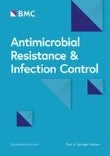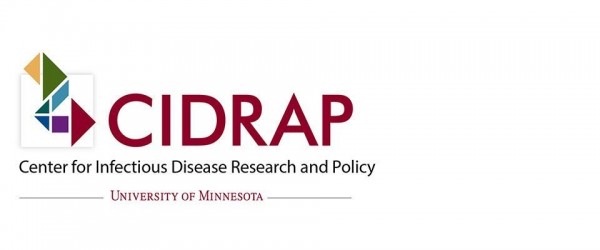
Editor's Note A study published July 9 in the American Journal of Infection Control found that clean paper towels are as effective—and in some cases more efficient—than sterile alternatives for surgical hand antisepsis. The results support their use as a cost-saving and safe alternative to sterile hand-drying products in surgical…

Editor's Note Reducing the number of OR personnel during preparation of sterile surgical goods significantly lowers airborne bacterial contamination, according to a randomized controlled trial published June 15 in Antimicrobial Resistance & Infection Control. The study measured contamination levels during sterile setup for 69 open-heart surgeries, comparing rooms with two…

Editor's Note Influenza and RSV infections more than double the risk of secondary Streptococcus pneumoniae infection, while COVID-19 is associated with a significantly reduced risk, according to a June 2 news brief from the Center for Infectious Disease Research and Policy (CIDRAP). The findings stem from a retrospective study of…

Editor's Note Legionalla contaminated a hospital ice machine and likely infected an oncology patient through aspirated ice chips, according to an April 30 report in Healio. Presented in a study at The Society for Healthcare Epidemiology of America (SHEA), the incident prompted immediate changes to water testing protocols at AdventHealth,…

Editor's Note Research published in Nature reveals that DNA damage caused by colibactin-producing gut bacteria is far more prevalent in younger patients with colorectal cancer, NBC News reports, suggesting a key factor behind the disturbing rise in cases among people under 40. According to the April 23 article, researchers from…

Editor's Note Research led by the University of Southern California and published in the journal Advances in Wound Care showed new technology using fluorescent light has proven effective in detecting bacteria missed during standard wound cleaning, US News & World Report August 30 reports. In a review of 26 medical studies,…

Editor's Note Most healthcare-associated surgical site infections are not caused by pathogens acquired in the hospital, but by previously harmless bacteria already present on patients’ skin prior to being admitted, according to a study published April 10 in Science Translational Medicine. Surgical site infections account for the highest annual costs…

Editor's Note The US Food and Drug administration approved Zevtera for treating Staphylococcus aureus bacteremia (SAB) bloodstream infections, which are often acquired in healthcare settings. In the April 3 announcement, the agency notes the new antibiotic Zevtera (ceftobiprole medocaril sodium for injection) is effective for SAB-infected patients with right-sided infective…

Editor's Note Although many studies have focused on infection transmission within the operating room, authors of research published in the March issue of the Journal of Infection Control focused their study of UV-C light disinfection on non-sterile hubs of patient care—in this case, high-touch surfaces within an academic endoscopy unit.…

For surgeons and other medical professionals, what to wear to work is more than just an afterthought. Over the decades, surgical scrubs have undergone a significant transformation, evolving from simple, functional garments to sophisticated attire that prioritizes both comfort and infection control. They are not merely clothing but a vital…